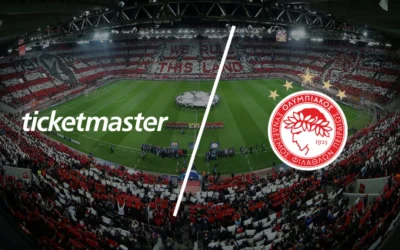Schools playing in this season’s college bowl games are getting a lesson in economic reality when it comes to ticket sales.
Quite simply, it’s this: Buyers will always go where the best deal is. These days, those deals are likely to be found on the secondary market rather than through a school’s ticket office.
For example, Virginia Tech is expected to fall short of selling its allotment of 17,500 tickets for the Sugar Bowl in New Orleans against Michigan on January 3. West Virginia and Clemson, who meet in the Orange Bowl in Miami on January 4, are reportedly thousands short each of selling their 17,500-ticket allotments.
“The secondary market used to exclusively be people on a street corner, and now the secondary market is as easy as going to the Internet and finding the best buy and finding where you want to sit,” Michael Kelly, associate commissioner for the Atlantic Coast Conference, told the Washington Post.
Virginia Tech athletic director Jim Weaver told the Post he still expects 15,000 to 20,000 Hokies fans in New Orleans, but most of them won’t have bought their tickets through the school.
On the Virginia Tech Web site, Sugar Bowl tickets are priced between $120 and $180. As of today, December 19, there were hundreds of upper-deck tickets for the game available on StubHub and other resale marketplaces for at least half that price.
Next month’s Sugar Bowl is the 19th consecutive bowl game for Virginia Tech. It’s not that Hokies fans have become bowl-weary; it’s more like they’re now wary of overpaying. As such, ticket brokers are seeing plenty of demand for tickets.
“Certainly, the high prices aren’t there [on the secondary market],” TicketCity COO Zach Anderson told TicketNews. “It’s a market-driven economy. Every distributor in every business is worried about being undercut by the market. Tickets that are $120 to $180? The market may not support that. Schools have to wonder: are those prices they set realistic?”
Many schools end up buying back bowl tickets that were being sold by the athletic department. Some offer programs where fans who purchase tickets but can’t attend games can donate tickets to charities or military personnel.
Additionally, the schools’ conferences usually help make up for ticket-sale shortfall, but schools sometimes still end up losing money.
Payouts from bowls are split among all the schools in its conference, so once tickets are bought back and travel expenses are factored in, many schools wind up losing money by going to a bowl. Virginia Tech took a $2.2 million loss on the 2009 Orange Bowl. The University of Connecticut lost about $1.6 million on its trip to the 2011 Tostitos Fiesta Bowl.
Sluggish ticket sales by some traditional college football powers are also fueling criticism of the bowl selection system. Virginia Tech (11-2) and Michigan (10-2) were behind Boise State (11-1) and Kansas State (10-2) in the Bowl Championship Series standings, but ended up being paired in the Sugar Bowl.
The two college football powerhouses received the nod over Boise and Kansas in part because of their program’s reputations and the propensity of their fans to travel. Ticket-selling ability will factor into future bowl selections.
“Everyone has a story for the games that they didn’t get in,” Anderson said. “At the end of the day, it’s the size of the fan bases, the passion those fan bases have shown and the reputation they have for traveling that bowls are going to look at, even in a so-called down year.”
The scheduling of the games can be a concern. With January 1 being the final Sunday of the NFL regular season — and six other bowl games scheduled on January 2 — the Sugar and Orange Bowls have been moved to midweek dates, which isn’t ideal for out-of-town fans.
The BCS Championship Game, this season matching Alabama (11-1) and Louisiana State (13-0) in New Orleans, has traditionally been played a few days after the other bowls to set it apart and allow for a media build-up.
“Every day you push past January 1, it causes problems for the fan,” Anderson said. “You’re a week into January now. A guy has already taken time off around the holidays, and he can’t get away. Bowls might be addressing that down the road.”



